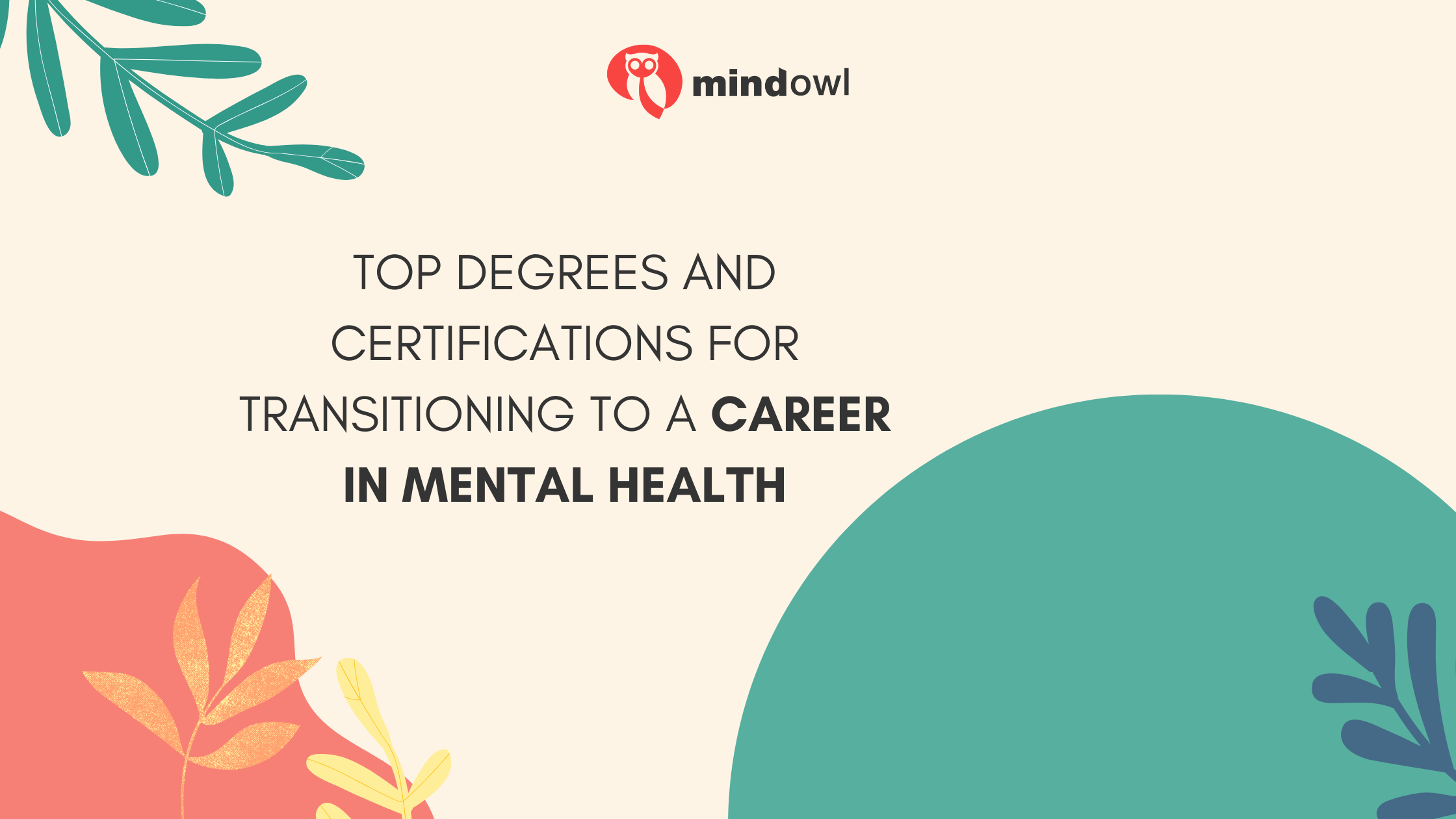Mental health careers are a rewarding way to give back to your community. Not only do they make a big difference in the lives that they touch, but they are also in high demand. Healthcare shortages have impacted every branch of medicine, but are felt particularly acutely in the world of mental health services.
This, because:
- The work is hard.
- And it requires a specialized, often advanced education.
These factors alone are enough to deter many people. Not put off? Great. Then let’s get into it. In this article, we take a look at how you can transition into the rewarding world of mental health care.
What is Involved in Transitioning?
Transitioning from one career into a new one is a unique kind of difficult. For most people, it will involve earning a new qualification while still tending to their current responsibilities. In other words, if you are like most people, you will need to work in your current position, while going to school to get a new one.
There is some good news:
- You may not need to start from the beginning. If you already have a college degree you should be able to take only classes that are relevant to the career you are interested in. Skipping gen-eds can save you thousands of dollars, and considerable time. You may even be able to find accelerated programs that help you along the way. For example, nursing and social work are both professions with accelerated certification options that will allow you to start working in as little as eighteen months. For both jobs, you’ll still need to do additional training to specialize in mental health care. Still, the accelerated program is a great way to transition as quickly as possible.
- Online learning makes things easier. The other thing that modern learners have going for them. It’s easier than ever to fit school into your busy routine. Online learning is often presented in flexible formats. Prerecorded lectures and other learning materials that you can complete on your schedule. Even in more traditional formats with live lectures, you can at least skip the commute.
Everyone is going to go in with a unique set of needs. The educational format that is right for you will depend on your existing credentials as well as your preferences. Figure out what makes the most sense.
Just be sure to research which options are appropriate in your region. Any college program that you choose needs to be regionally accredited. This means that it is recognized not only by the federal government but also by the state where you live.

When/ Why is Graduate School Necessary?
Let’s provide a very common/practical example. Say you want to enter the world of mental healthcare by way of nursing. Currently, you are in marketing. You have a college education, but that degree has basically nothing to do with mental health.
What Does Your Path Ahead Look Like?
Well, to begin with, you can get your nursing certification through one of the two methods described in our last heading. You can either:
- Re-enroll in college focused only on nursing-specific classes. This will allow you to work on your nursing certification in a timeline that makes the most sense to you, even if that means taking it one class at a time. Or, if you are in a rush, you can…
- Go for the accelerated option. Again, accelerated programs condense all of your requirements into an 18-24 month timeline.
Let’s say you take door number two and wind up an RN in eighteen months. Now you can work in hospitals and clinics, often with patients receiving mental health services. However, you aren’t a decision-maker. You aren’t shaping the trajectory of their care.
In this scenario, graduate school might be what makes the difference. An MSN program that focuses on psychiatric care will give you much more influence on the lives of your patients.
A psychiatric nurse practitioner can make diagnoses. They can prescribe medications. They can play a much bigger role in designing care than a standard nurse.
Of course, there is a caveat. Getting a graduate degree takes three years and a whole lot of money. Now we are talking about a “career pivot,” that will take half a decade, and tens of thousands of dollars.
Are there faster ways to get it done?
Mental Health Certifications
As a nurse, you can also consider getting a psychiatric mental health certification. This credential will qualify you to work in specialized clinics, or psychiatric floors/hospitals. In this case, you are fully specialized in mental health services, but you aren’t shaping the direction of care the way you would as a nurse practitioner.
There are advantages to this route over graduate school. For one thing, it’s considerably cheaper. Your employer may even pay for it. It’s also quicker.
In many cases, you can start working in a psychiatric hospital immediately after becoming an RN. In this scenario, you can work on your certification while holding a psychiatric nursing position. Once you have completed the program you will generally receive more responsibilities. You might also get a pay increase.
Where Does Social Work Fit In?
If the nursing route doesn’t quite sound right, you might also consider social work. To become a clinical social worker, you will need a graduate degree. Here’s the good news: If you already have a college degree, you may be able to start working on your social work master’s without acquiring any other credentials.
Unlike nursing, where you first need your BSN, the entry requirements for social work graduate school are a little less strict. Admission requirements will vary by program, but most degree holders with a decent transcript shouldn’t have a terribly hard time finding a suitable option.
This will allow you to begin your social work career in 2-3 years, instead of the five-year timeline we described for becoming a nurse practitioner.
Clinical social workers provide therapeutic services while also coordinating care and advocating for people on their caseload.
Conclusion
There are so many ways to begin working in mental health care. It’s very possible that your eventual path wasn’t even described in this article. It’s important to keep in mind that your location will have a big influence on the path you ultimately take.
Research local requirements to get a good idea of what programs are available to you. There are so many ways to work in mental health care. Find the path that best suits you.
MindOwl Founder – My own struggles in life have led me to this path of understanding the human condition. I graduated with a bachelor’s degree in philosophy before completing a master’s degree in psychology at Regent’s University London. I then completed a postgraduate diploma in philosophical counselling before being trained in ACT (Acceptance and commitment therapy).
I’ve spent the last eight years studying the encounter of meditative practices with modern psychology.

